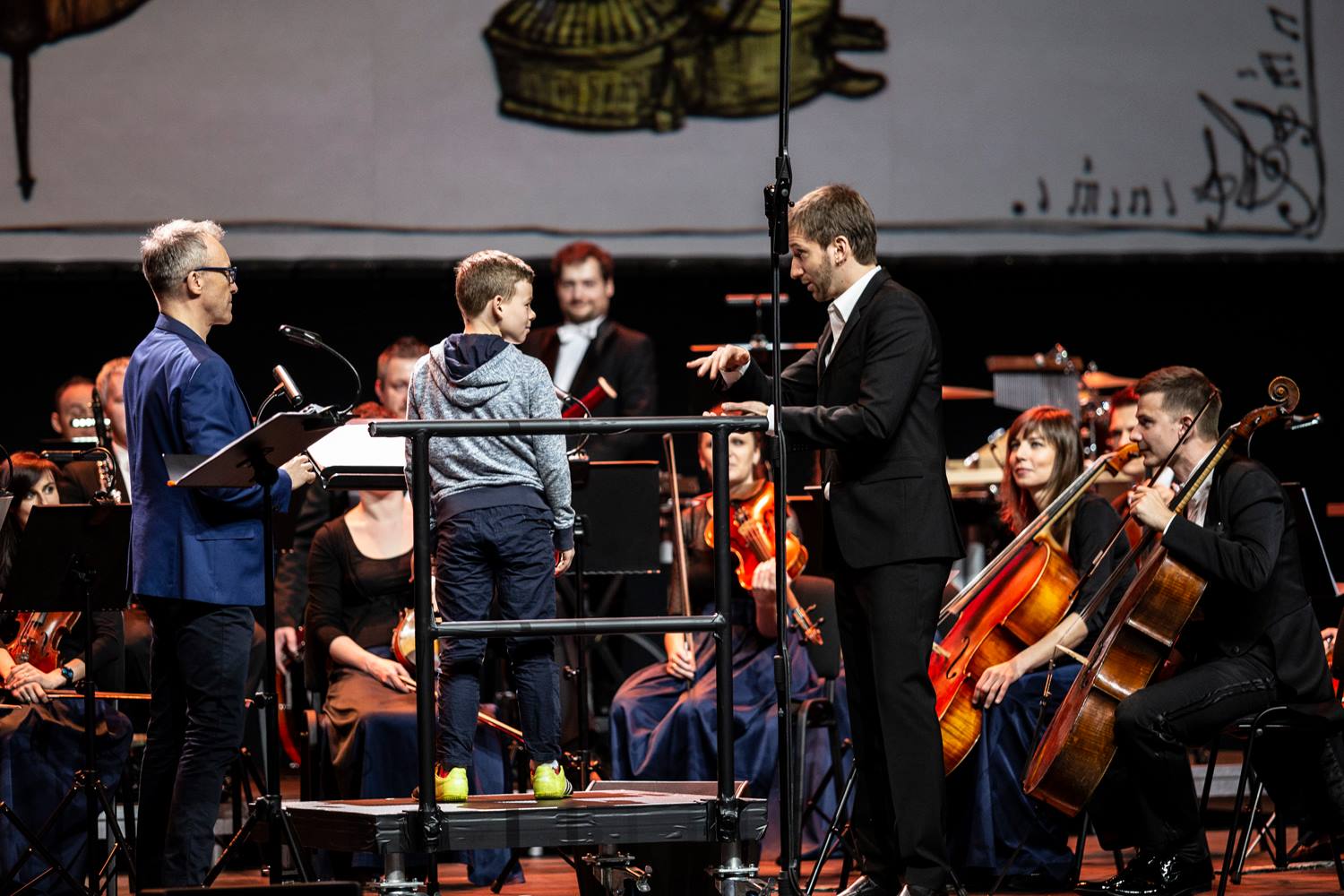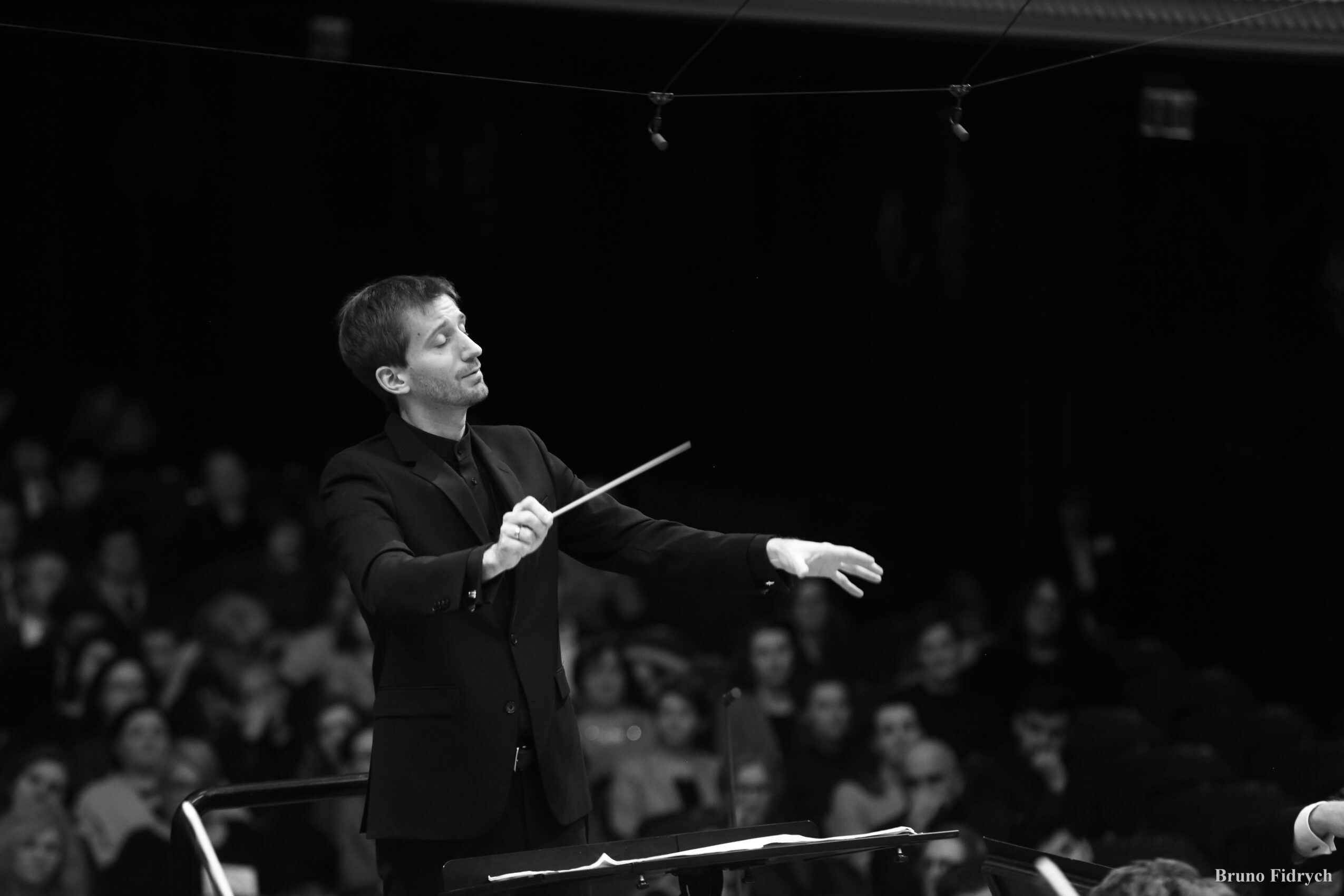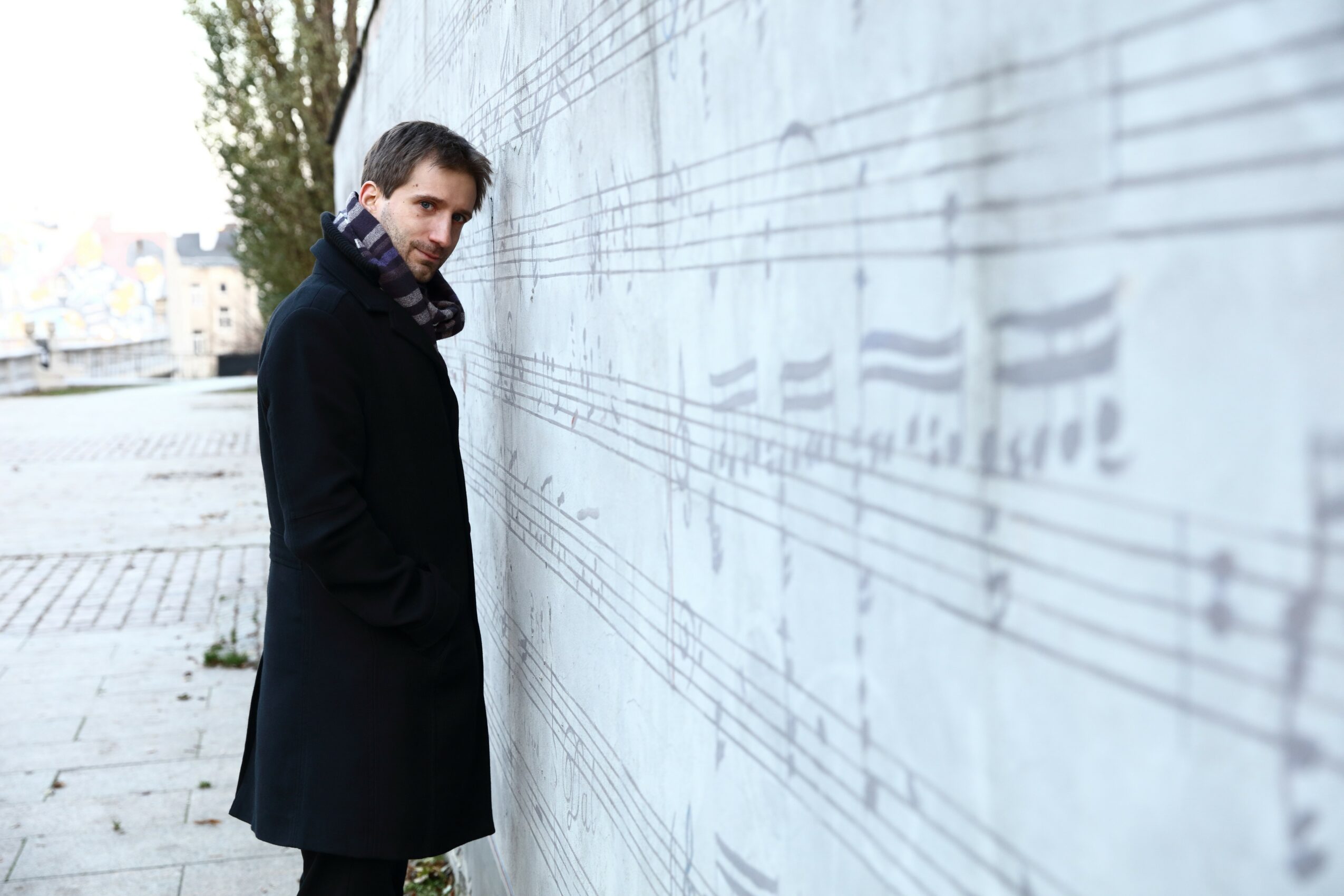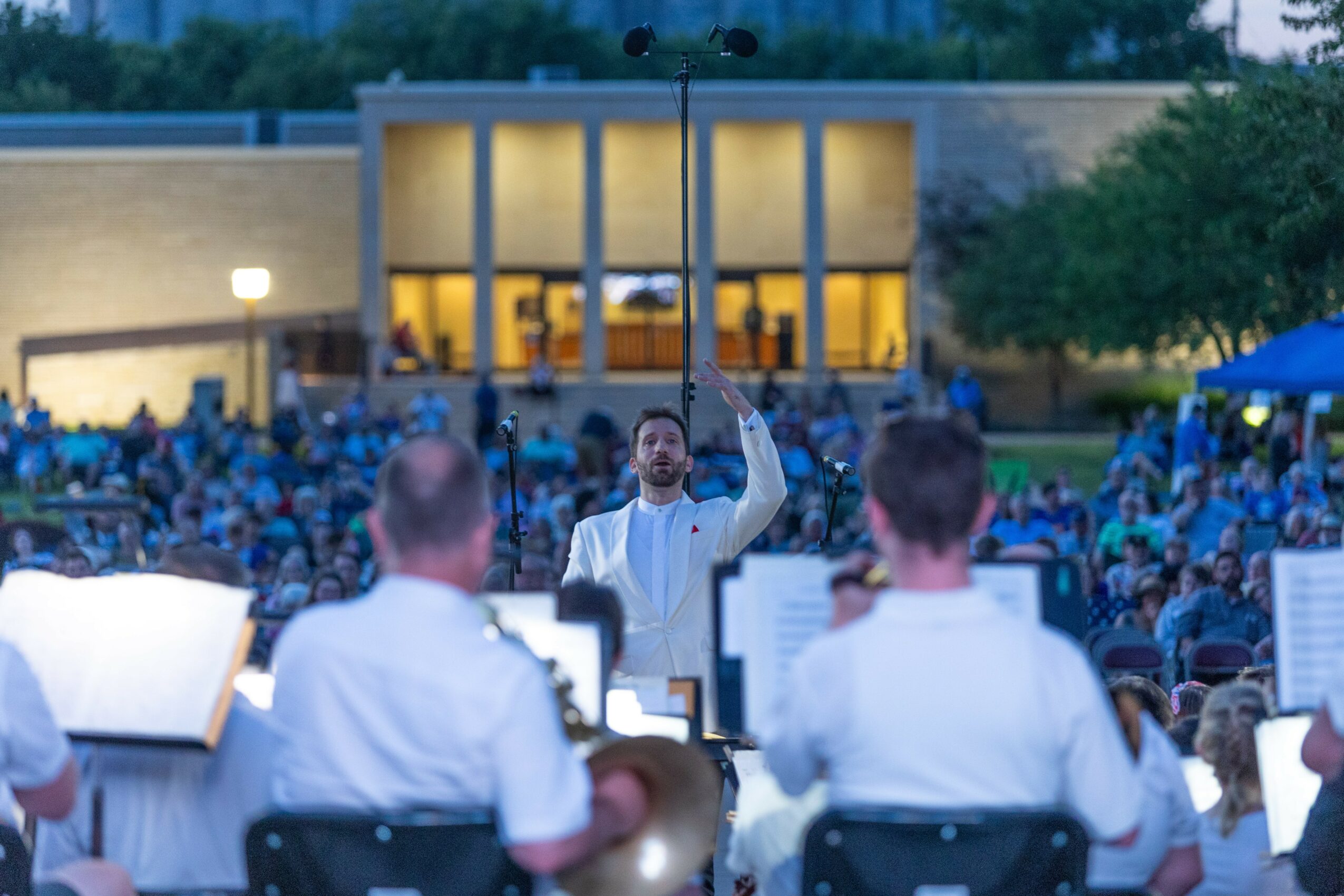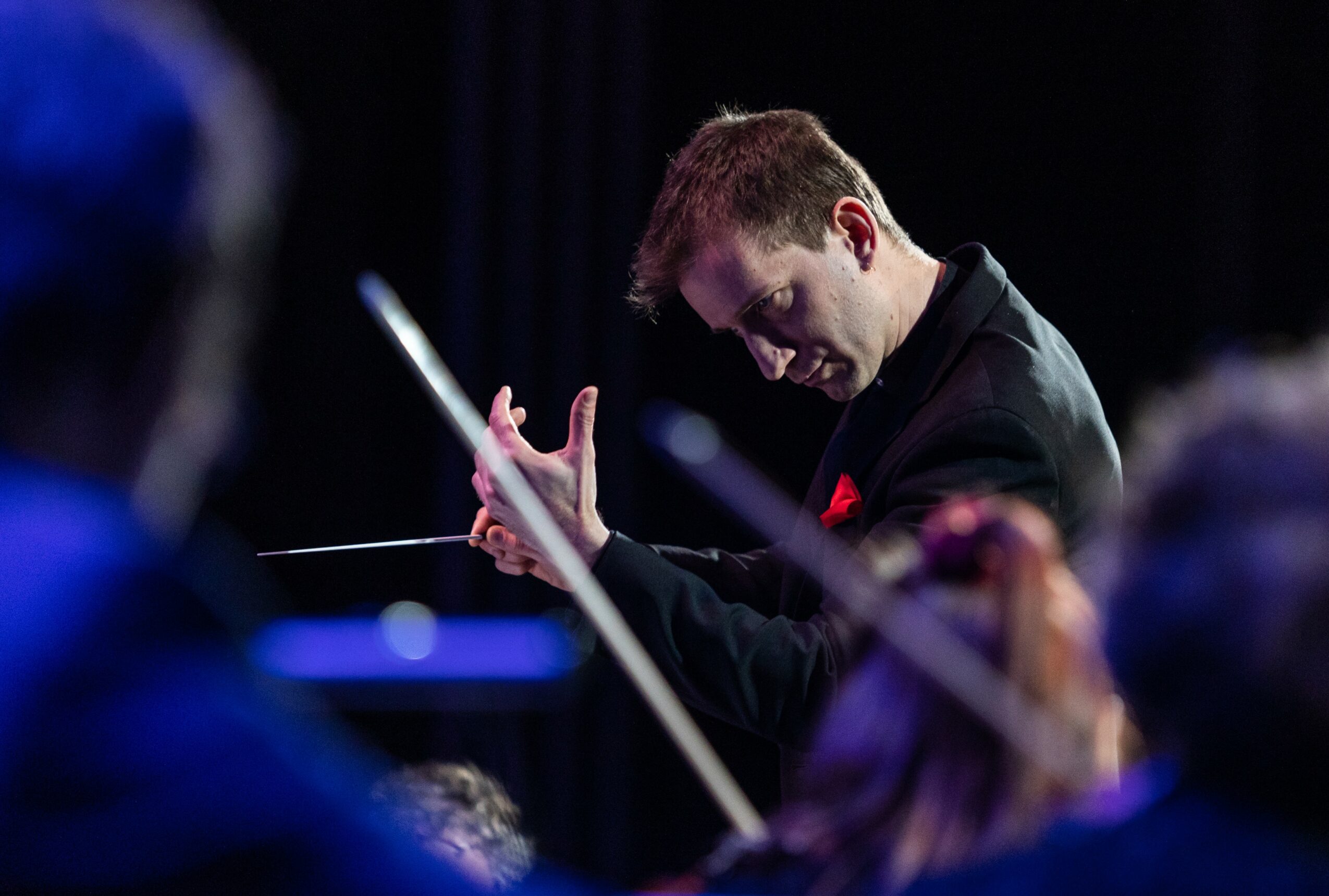

Today we’d like to introduce you to Yaniv Segal
Hi Yaniv, please kick things off for us with an introduction to yourself and your story.
My story starts with my parents, who emigrated from Poland (mother) and Israel (father). They met in New York City. My father is violin maker and my mother is a now-retired violinist – who was the sixth woman to be in the New York Philharmonic! Though my sister and I were born in the US, my parents spoke their native tongues with us at home and maintained some of their cultural identity in our household. We learned English in school and spoke English with our friends.
I started playing the violin at age four and was lucky to have an amazing teacher. When I was eight, my sister and I joined the Metropolitan Opera Children’s Chorus. A typical day could include practicing after school and then rehearsals or singing in operas late at night, and then waking up and going to school the morning just like every other kid.
I went on tour with the First National Tour of the Secret Garden (Broadway musical) for a year when I was 11-12 years old. Then I landed another job playing Stockhard Channing’s son in “Hapgood,” a play by Tom Stoppard at Lincoln Center. Meanwhile I always kept practicing, and even writing some music here and there.
I wanted to go to a “normal” college, not a conservatory, but kept on playing violin in college, writing music, and also beginning to conduct. After graduation, I moved back to the New York City area, freelanced as a violinist, violist, composer, and conductor and supplemented my work by tutoring for the Princeton Review, and working in my father’s violin shop. I also co-founded an orchestra called The Chelsea Symphony, which provides important performance opportunities for young musicians, and is still thriving today.
Graduate school brought me to the University of Michigan, where I completed degrees in both orchestral conducting and composition. While I was a student, I got married to Joanna, whom I met while I was in NY (she played flute in a community orchestra while pursuing an MD-PhD!). She moved to Ann Arbor to complete her medical training, post-doc, fellowship, etc – and stayed at the University of Michigan where she is now faculty. I started living the itinerant conductor-life, traveling and getting work all around the US as well as in Europe.
We have chosen to stay in Ann Arbor where we are happy with the quality of life, the arts scene in Southeast Michigan, the great opportunities we can give our young boys (aged 10 and 7), and the ease with which I can travel to work via the Detroit Airport.
These days I juggle family life with my musical activities. At home, when not helping to take care of the family or house, I write music, study scores, and prepare for my musical season. I have several positions concurrently: Music Director of the Salina Symphony in Kansas, Conductor of the Mercer-McDuffie Symphony Orchestra at the Robert McDuffie Center for Strings in Macon Georgia, Music Director of American Patriots (a thought-provoking theatrical song-cycle currently in development), and as Advisor and Conductor Laureate to the Chelsea Symphony.
Would you say it’s been a smooth road, and if not what are some of the biggest challenges you’ve faced along the way?
Definitely not a smooth road! The road to being an artist is very rarely linear.
As a teenager who already had achieved success in several artistic fields, I had some burnout and didn’t want to practice violin anymore. I sank into a depression and hadn’t realized how much music was a fabric of my existence. Coming out of that was important for me to realize how many paths are possible in life, and I didn’t have to follow the one to be an instrumental soloist.
After college, I didn’t initially apply to graduate schools. And when I did, I did not get in the first time I applied. Conducting programs are very small, and they only accept a handful of people per year. It took perseverance and hard work to prepare for the auditions and try again.
The same with job applications, sometimes over 200 candidates apply for a single open music directorship.
The pandemic was especially hard on my field. Spring of 2020 was going to be my personally most important yet, with several guest conducting opportunities and a prime date at a festival in Warsaw, Poland. All of those dates were “postponed” due to COVID-19, but the reality is that after the pandemic, those opportunities did not come back for me (as well as for many others). It was as if I had lost all momentum and had to start over. It has taken several years, but finally I feel like things are falling back into place.
Being an artist and wanting a career in the arts comes with the understanding that there are many brilliant and capable people out there, and that you have to try your best and always be prepared. You cannot control the luck factors in life, but you can control your own preparation and abilities so that when an opportunity presents itself, you are ready to go.
Appreciate you sharing that. What else should we know about what you do?
I primarily conduct symphonic orchestras. But I also write music.
One of the things I am most proud of is a piece that I wrote called “The Harmony Games.” This is a program for full or small orchestra and narrator. It tells a story about a fictional world where four families (corresponding to the four families of the orchestra, strings, winds, brass, and percussion) are always fighting and realize that through music, they can come together and get along. The show includes musical and mathematical concepts and is interactive. When I wrote it, I was very worried that the young concert goers (third and fourth graders) might be bored or not engaged. I remember being very nervous for the first few concerts (I was not conducting, thankfully!). And I would look at the audiences and watch as the kids who started out the concert by wiggling and being clearly antsy became more and more drawn into the performances. The cheers and requests for “more!” at the end of the concerts was one of the most rewarding experiences of my musical life. I knew that I had helped each audience connect with the story and music on stage, and walk away with the message that listening to other and learning about their humanity is what is ultimately the most important thing.
I had a very unusual multicultural upbringing as well as a professional life as a child. As a musician with vast stage and performance experience, I like to draw upon all my knowledge to create events that connect people together.
What matters most to you?
Empathy is the most important thing in the world.
If more humans had true empathy, I think we would see less war and less violence in the world.
When I was younger, there was an experience that has stuck with me: I remember watching some events unfolding right in front of my and my best friend. Just a few minutes later, I heard him describe the scene to someone else, and it was completely different than what I thought had happened. In concerts, or in day-to-day life, people can experience the same event and yet come away with completely different conclusions, perceptions, or experiences. And all of these are valid responses to what has just happened.
If we can respect and empathize with difference, then we can begin to understand people who have different values than us. And once we truly understand their values, we can connect and find that there’s far more that connects us than divides us.
Contact Info:
- Website: https://www.yanivsegal.com
- Instagram: https://instagram.com/yanivmusic/
- Facebook: https://www.facebook.com/yanivsegalmusic
